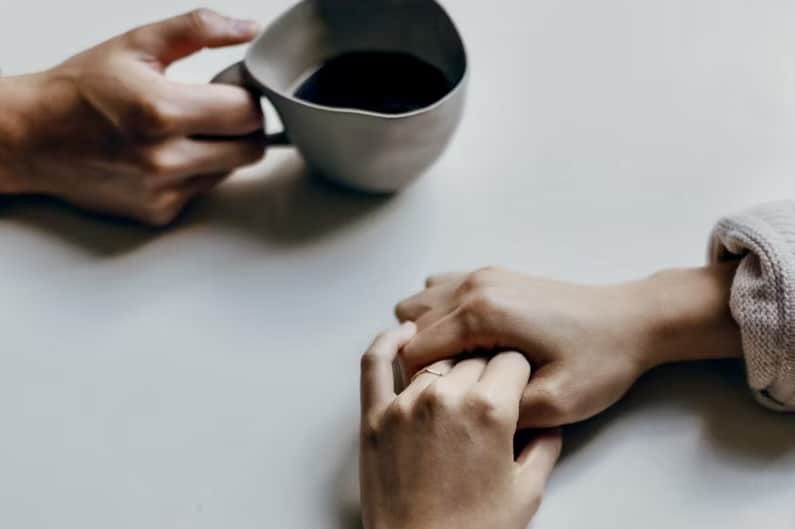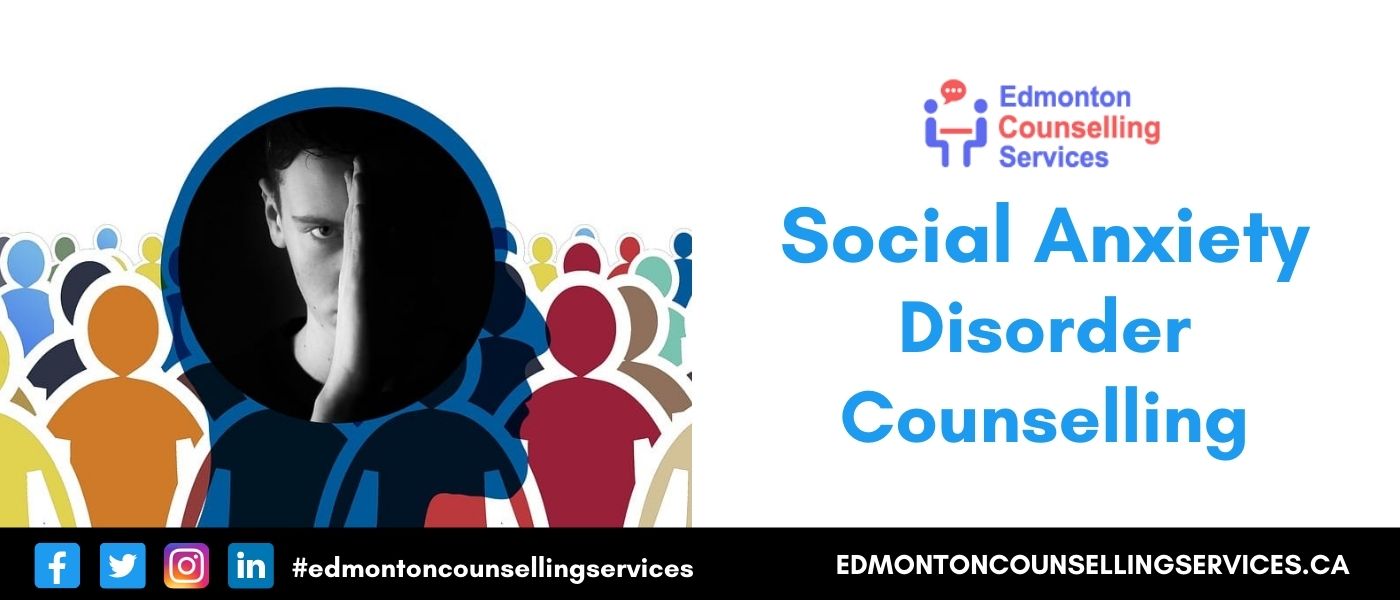Explore effective techniques through counselling for anxiety disorder programs
Explore effective techniques through counselling for anxiety disorder programs
Blog Article
Checking Out Various Approaches in Counselling for Stress And Anxiety Condition for Enduring Adjustment
When tackling anxiousness problems, it's necessary to check out a selection of counseling methods. Each technique provides special understandings and devices to help you handle your signs successfully. You could find that integrating strategies can produce the most effective results. Comprehending the nuances of these strategies is crucial to cultivating long-term adjustment. What happens if the best combination could release a brand-new degree of psychological well-being for you?
Recognizing Anxiousness Disorders: A Brief Review
Anxiousness conditions, which affect millions of people worldwide, can greatly affect daily life. You may experience frustrating feelings of fear or fret that seem uncontrollable. These feelings can bring about physical symptoms like a racing heart, sweating, or also lightheadedness. Typical types of stress and anxiety problems consist of generalised anxiety problem, panic condition, and social anxiety condition. Each has one-of-a-kind indications, but they all share a propensity to interrupt your regular and relationships.Understanding the source of your anxiousness is important. It might stem from genes, brain chemistry, or life experiences. Recognizing your triggers can assist you handle your feedbacks better. It is essential to bear in mind that you're not alone in this struggle. Many individuals face similar challenges, and looking for assistance is a solid step towards feeling much better. By learning more about stress and anxiety problems, you're currently on the course to understanding and managing your condition better.
Cognitive-Behavioral Treatment: Testing Negative Thought Patterns
In Cognitive-Behavioral Treatment, you'll start by recognizing the negative thought causes that add to your stress and anxiety. You'll work on changing them with more favorable choices as soon as you recognize these thoughts. Together, you'll build efficient coping techniques to aid handle your anxiety in day-to-day scenarios.
Determining Negative Idea Triggers

When you experience minutes of distress, recognizing the details triggers behind your adverse ideas can be important in handling stress and anxiety. Begin by focusing on scenarios that provoke feelings of fear or fear. Is it a jampacked area, a future target date, or a discussion with specific individuals? Write down these circumstances in a journal. This will certainly assist you identify patterns in your reasoning. Likewise, notice physical sensations that accompany your adverse ideas, like a racing heart or rigidity in your breast. By pinpointing these triggers, you get understanding right into what's fueling your anxiety. Recognizing these links is the very first step in challenging those thoughts and eventually gaining back control over your psychological reactions.
Replacing Ideas With Positives
Challenging adverse thought patterns is a crucial step in changing your state of mind and minimizing anxiousness. You might often locate on your own trapped in cycles of self-doubt or tragic reasoning. As opposed to letting these ideas determine your sensations, practice changing them with positive affirmations or reasonable options. When you think, "I can't handle this," shift it to, "I can manage difficulties one step at a time." This basic change can greatly impact your mood. Frequently determining and countering these negative thoughts helps develop a healthier inner dialogue. Keep in mind, it takes time and effort, yet constantly exercising this technique can lead to enduring modification, encouraging you to deal with stress and anxiety with renewed self-confidence and resilience.
Building Coping Approaches With Each Other
Replacing unfavorable thoughts is just the start of handling anxiety effectively. To create long lasting adjustment, you require to build coping strategies that empower you. Cognitive-Behavioral Treatment (CBT) aids you identify and challenge those purposeless idea patterns. Together, you and your counselor can explore exactly how these thoughts impact your feelings and behaviors.Start by creating useful techniques, like journaling or mindfulness exercises, that enable you to challenge anxiousness head-on. When you encounter your worries progressively, you'll learn to react in a different way.

Mindfulness and Acceptance-Based Approaches: Growing Present-Moment Recognition
As you browse the complexities of anxiousness, including mindfulness and acceptance-based methods can significantly improve your capacity to cultivate present-moment recognition. By focusing on the present moment, you'll find that you can observe your ideas and feelings without judgment (Counseling services for anxiety). This method aids you acknowledge your anxiousness without really feeling bewildered by it.Engaging in mindfulness workouts, such as deep breathing, body scans, or directed reflections, enables you to ground on your own in your existing experience. Acceptance-based approaches urge you to accept your feelings as opposed to fight against them. They lose their power over you.Incorporating these methods right into your everyday routine can transform exactly how you react to stress and anxiety when you accept your sensations. You'll establish strength and find out to browse demanding scenarios with better convenience. Eventually, growing present-moment recognition lays the structure for enduring adjustment, equipping you to lead a more satisfying life
Exposure Therapy: Challenging Anxieties Progressively
Exposure therapy aids you confront your worries in a gradual means, making it less frustrating. You'll find out techniques to encounter anxiety-provoking scenarios detailed, while likewise developing coping strategies to handle your responses. This approach equips you to take control and decrease stress and anxiety over time.
Progressive Direct Exposure Methods

When dealing with anxiety, slowly challenging your worries can be a powerful means to restore control. This strategy, recognized as steady direct exposure, entails slowly exposing yourself to the situations or objects that activate your stress and anxiety. Start with much less daunting situations and slowly function your method as much as even more challenging ones. For example, if you're afraid of public talking, you could start by talking before a mirror, after that advance to sharing thoughts with a friend, and at some point deal with a tiny team. Each step assists desensitize you to the concern, constructing your confidence with time. Bear in mind, it's necessary to speed on your own and commemorate tiny victories as you move with this process, reinforcing your capability to handle anxiety effectively.
Structure Coping Strategies
Building effective coping techniques is essential for handling stress and anxiety, particularly as you confront your worries slowly - Counseling services for anxiety. One powerful method is exposure therapy, where you start by encountering your fears in a regulated way. Start with less intimidating scenarios and gradually work your method as much as more tough scenarios. This progressive direct exposure aids desensitize you to stress and anxiety sets off, making them much less overwhelming.Incorporate relaxation methods, such as deep breathing or mindfulness, to calm your mind throughout direct exposure. Track your progress, commemorating little triumphes in the process to improve your confidence. Bear in mind, it's okay to take your time; the goal isn't excellence yet consistent renovation. By building these techniques, you'll equip yourself to navigate anxiety and accept life more completely
Psychodynamic Therapy: Revealing Source of Stress And Anxiety
Psychodynamic treatment explores the unconscious mind, exposing the source of your stress and anxiety. By examining your thoughts, feelings, and past experiences, this method aids you uncover underlying conflicts and unsettled issues that might contribute to your existing stress and anxiety. You'll work with a specialist to investigate childhood years experiences, connections, and psychological patterns that form your actions today.As you obtain understanding right into these much deeper layers of your psyche, you'll begin to acknowledge exactly how previous occasions influence your existing habits. This understanding can bring about catharsis, allowing you to refine emotions you might have suppressed.Through the therapeutic connection, you can additionally recognize defense mechanisms that may have established in time, providing a clearer course to alter. Ultimately, psychodynamic treatment furnishes you with the tools to address your stress and anxiety at its core, advertising long-term change in your emotional wellness.
Alternative and integrative Strategies: Combining Methods for Greater Effectiveness
Incorporating various therapeutic techniques can improve your trip toward handling anxiety better. By incorporating components from cognitive-behavioral treatment, mindfulness methods, and all natural approaches, you can develop a tailored approach that resolves your special demands. You may make use of cognitive-behavioral techniques to test negative idea patterns while integrating mindfulness exercises to ground on your own in the existing moment.Additionally, discovering holistic methods such as yoga or reflection can advertise leisure and decrease stress and anxiety signs and symptoms. This blend allows you to establish better self-awareness and resilience.Experimenting with these varied approaches can help you find what reverberates most with you. Bear in mind, it has to do with finding a harmony that functions, as opposed to staying with a single approach. This integrative method not only uses prompt relief but additionally promotes long-lasting skills for handling anxiousness, equipping you to recover control over your life.
The Duty of Support Solutions: Building Resilience Via Link
While it might appear that managing stress and anxiety is a solitary journey, having a strong support system can play a necessary role in your resilience. Surrounding yourself with compassionate buddies, household, or support groups produces a risk-free space where you can openly share your feelings and experiences. You advise on your own that you're not alone in this struggle.These relationships use support and can give useful coping methods that have actually functioned for others when you connect with others. It's likewise a chance to gain perspective; pals can aid you see situations more info differently, minimizing sensations of isolation.Moreover, psychological support fosters a sense of belonging, which can significantly reduce anxiousness signs and symptoms. By leaning on your support system, you can develop strength and deal with difficulties much more successfully. Keep in mind, reaching out for assistance is a sign of strength, and it can make all the difference in your trip toward taking care of stress and anxiety.
Often Asked Inquiries
What Are the Usual Symptoms of Anxiousness Disorders?
You could experience uneasyness, exhaustion, difficulty focusing, impatience, muscle stress, and sleep disturbances. Physical signs can consist of quick heartbeat, sweating, and shivering. Identifying these indicators early can help you look for appropriate assistance and therapy.
For How Long Does Treatment Commonly Last for Anxiousness Disorders?
Therapy for stress and anxiety conditions generally lasts anywhere from a few weeks to a number of months. It really depends upon your individual demands, progression, and the methods your specialist uses to assist you handle your stress and anxiety successfully.
Can Drug Be Used Along With Therapy for Anxiety?
Yes, medicine can definitely be used alongside therapy for stress and anxiety. Integrating both strategies usually improves therapy performance, assisting you take care of signs while discovering underlying concerns through counseling (Counseling services for anxiety). Always consult your medical care copyright for customized recommendations
Exist Self-Help Techniques for Managing Anxiousness?
Yes, there are numerous self-help techniques for taking care of stress and anxiety. You can practice mindfulness, participate in normal exercise, preserve a well balanced diet, establish a routine, and use deep breathing techniques to assist minimize anxiousness signs and symptoms effectively.
How Do I Know if I Required Expert Assistance for Stress And Anxiety?

Report this page